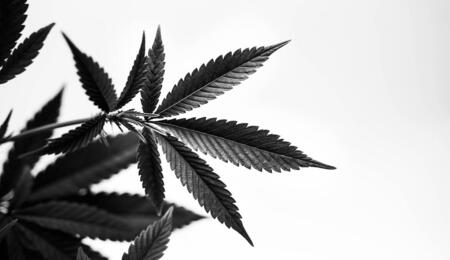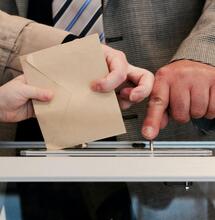Oklahoma Rejects Legalization Referendum

Oklahoma voters rebuked a statewide cannabis legalization referendum. The Sooner State has some of the wildest medical marijuana industries in the nation. There have been many opponents to further legalization, including law enforcement, political and religious leaders, and school administrators.
Oklahomans voted down the recreational weed ballot measure known as Oklahoma State Question 820, showing a lack of support for fully opening up the market to adult-use sales for anyone of legal age.
The ballot was defeated on March 7. The significant gap in the results was clear already through half the count. In the end, nearly 62% of voters said no in the referendum, and less than 40% voted yes.
The recreational legalization initiative in Oklahoma came five years after the state launched its medical cannabis program.
State Question 820 sought to effectively decriminalize the use of Cannabis, introduce an excise tax on cannabis sales, and expunge marijuana-related criminal convictions.
Michelle Tilley from the Yes on 820 campaign pointed out that hundreds of thousands of Oklahomans already used cannabis in some capacity and that legalization in the state was inevitable. "I challenge our legislature, I challenge our governor, this in your hands now," she said.
Legalization supporters reportedly spent almost $5 million to push forward the initiative, outspending opponents 20-to-one. But to no avail.
"The anti-revolutionary forces want to return Oklahoma to their dream of this bygone era," said Lawrence Pasternack, a legalization advocate who's extensively analyzed the state's cannabis experiment. "They see marijuana as anathema to that dream."
Roughly 10% of Oklahomans, or nearly 400,000 enrolled patients, currently have access to the state's medical cannabis program, which has otherwise been embroiled in many scandals and a lot of crime ever since its launch five years ago.
There are 12,000 licensed businesses in operation right now in Oklahoma, and it's believed that many more are operating illegally. Dispensaries and cultivators can be found everywhere around the state, and their number is always significant regardless of whether that area is more impoverished or prosperous. The police often don't have the resources to investigate the legality of all the entities that run a cannabis business.
The failed referendum might not immediately affect Oklahoma's cannabis sector. But cannabis advocates believe it will encourage law enforcement to introduce more rigid regulations to control the market.
Pat McFerron, affiliated with the No 820 campaign, said the vote "sends a clear message that Oklahomans oppose the unfettered access to marijuana we have experienced under our so-called medical program."
"Oklahoma is a law and order state," added Governor Kevin Stitt, a Republican who also stood against legalization. He clearly stated that he would "continue to hold bad actors accountable and crack down on illegal marijuana operations."
The lack of success in the Oklahoma legalization referendum is the latest in a series of failed ballot initiatives across the U.S. Legalization initiatives have recently also died in Arkansas, South Dakota, and North Dakota. Still, campaigns in Maryland and Missouri have been marked with success.







